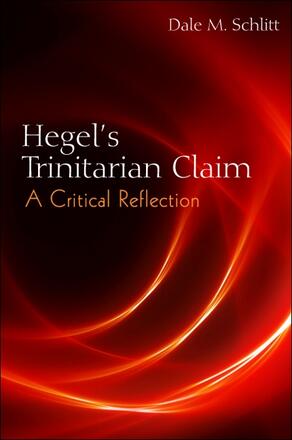
Hegel's Trinitarian Claim
A Critical Reflection
Alternative formats available from:
Landmark study of Hegel’s arguments for God as Trinity.
Description
Hegel's philosophical interpretation of Trinity as a dialectically developing movement of Spirit is one of the most profound readings of Trinity in Western thought. In Hegel's Trinitarian Claim, Dale M. Schlitt provides a careful, detailed presentation of this claim in Hegel's major published works and in his lectures on the philosophy of religion, taking a critical look at how Hegel presents his claim that to think of God as subject and person one must think of God as Trinity. Although agreeing with Hegel's conclusion, Schlitt argues on the basis of an immanent critique of Hegel's thought that Hegel is not able to defend that claim in the way in which he proposes to do so. Schlitt argues instead that Hegel's trinitarian claim can be justified when Spirit is no longer seen as a movement of thought but as a movement of enriching experience. This close analysis provides an excellent point of entry into the wider study and critical consideration of Hegel's systematic philosophical project as a whole. Originally published in 1984 and available now in paperback for the first time, this edition features a new preface and postscript.
Currently Research Professor in Philosophy and Theology at the Oblate School of Theology, Dale M. Schlitt spent many years at Saint Paul University in Ottawa. His books include Divine Subjectivity: Understanding Hegel's Philosophy of Religion and Experience and Spirit: A Post-Hegelian Philosophical Theology.
Reviews
"…the book impressively treats the breadth of Hegel's work … Schlitt's [book] gives a deeply detailed and thoroughly articulated account of Hegel's approaches to Trinity, as well as of the expansive secondary resources on Hegel's Trinitarian thought. " — Hegel Bulletin
Praise for the First Edition
"…the 'demythologizing' of such notions as reconciliation, incarnation, and trinity takes place more or less everywhere [in Hegel's system as a whole]. Any one of these can be fruitfully taken … as a hermeneutical key for exposition of Hegelian thought in its totality. Just as fruitfully, any of these central themes can be the focus of critical evaluation. This splendid study undertakes both of these tasks with reference to the trinitarian theme … Schlitt's book has a comprehensive depth that makes it a worthy successor to Jörg Splett's 1965 monograph, Die Trinitätslehre G. W. F. Hegels. Its massive supply of footnotes is almost a second book, a Literaturbericht that is especially thorough in its treatment of the German materials of the last several decades. " — Journal of the American Academy of Religion
"[This study] treats its subject matter at a high level of reflection, in continual discussion with secondary literature and on the newly established basis of texts [distinguishing the four series of Hegel's] lectures on the philosophy of religion. Schlitt's thesis … is embedded in thorough presentations and subtle, focused discussions, which serve as well to inform American readers about ongoing discussions in Germany and France … a high-quality, comprehensive study. " — Theologie und Philosophie